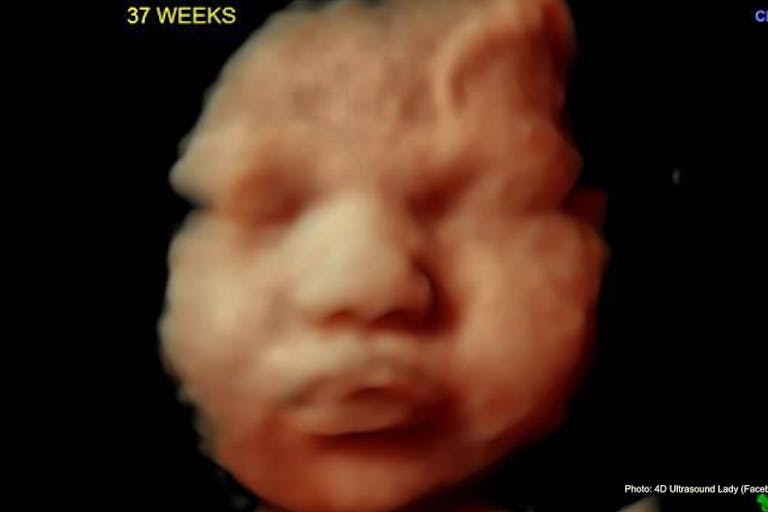
Prosecutors drop charges against Polish doctor who aborted baby in ninth month
Nancy Flanders
·
Guest Column·By Susanne Maynes
The best way to respond to unfair tactics by abortion advocates
(Pregnancy Help News) A recent article in my town’s local newspaper, titled “In the Wake of Dobbs,” cited the increase in people seeking abortions out of state. The writer laments how this forces women to travel for “care,” resulting in more expensive and/or delayed abortions.
The article further describes how abortion funds are “struggling to keep up” with the demand. In this writer’s view, our state’s abortion trafficking law, which criminalizes anyone who helps a minor obtain an abortion without parental consent, is evidently a terrible law.
One example the article offers of the impact of new restrictions is a residency program which stopped abortion training offered through a Planned Parenthood clinic. This is seen as cause for grave concern. Again and again, “limited medical care” and a growing shortage of “health providers” is put forth as a woeful, gloomy outcome of the Dobbs decision, which is framed as an injustice to the poor.
Needless to say, the slant of this article leaves no room for the incredible work pregnancy help centers have been doing for decades.
We did this work long before the laws changed. We’ve been helping disadvantaged, under-resourced people for decades. And we’ve done it without relying on funds from government programs.
We’ve witnessed countless clients find hope, break out of negative patterns—even generational ones—and gain a whole new perspective on life.
But those we serve don’t arrive at such outcomes by means of abortion.
Abortion doesn’t help in breaking destructive patterns or offering hope for the future or a transformed life. In fact, it can add another complex layer to the trauma a client has already suffered.
That’s why those in life-affirming ministry don’t call abortion “reproductive health care” or “medical care.” We don’t call abortion providers “health care providers” or “care providers.”
By definition, the goal of health care is to heal patients, not to kill them. Offering “health care” means attending to the patient’s well-being, safety, and healing. In the case of a pregnant woman, both human beings should receive care.
Of course, abortion proponents have long been masters of using euphemisms to deflect from what’s really being offered—a lucrative “procedure” in which the preborn patient dies and the mother is put in harm’s way. A woman in an unplanned pregnancy is promised a quick solution to her current dilemma but is not offered the support she needs for a brighter future.
Yet abortion proponents vehemently and even violently oppose the work of pregnancy centers, claiming our clinics are not safe or even fake. Coming from a group which allegedly provides “health care” to women, this is the height of irony.
The tactic is called gaslighting. Here’s the definition:
Article continues below
Dear Reader,
In 2026, Live Action is heading straight where the battle is fiercest: college campuses.
We have a bold initiative to establish 100 Live Action campus chapters within the next year, and your partnership will make it a success!
Your support today will help train and equip young leaders, bring Live Action’s educational content into academic environments, host on-campus events and debates, and empower students to challenge the pro-abortion status quo with truth and compassion.
Invest in pro-life grassroots outreach and cultural formation with your DOUBLED year-end gift!
To psychologically manipulate (a person) usually over an extended period of time so that the victim questions the validity of their own thoughts, perception of reality, or memories and experiences confusion, loss of confidence and self-esteem, and doubts concerning their own emotional or mental stability.
This term explains the dynamics used by abusers to keep another person in their control. The abuser will twist circumstances to make themselves look like the victim and make the other person feel like they must be crazy.
In the case of abortion advocates and pregnancy centers, abortion proponents attempt to psychologically manipulate those in pregnancy help ministry by pretending to be the victim and making life-affirming folks look like the bad guy.
As a wordsmith, I’m bothered by semantic games. I’m even more disturbed by manipulation and lies. When I witness such dirty tactics, it’s tempting to allow my anger to morph into bitterness. Yet as much as I disagree with abortion advocates and dislike their tactics, the answer isn’t to become resentful of them.
I recognize the existence of a spiritual deceiver who is happy to yank human beings around like puppets if he has the opportunity.
He’ll pull the wool over their eyes and trick them into thinking they’re acting righteously. He’ll get them to believe evil is good, and good is evil. Once people are in that place, it takes a revelation for them to see clearly again.
Beyond conversations and debates with opponents, which have their place, my responsibility is to pray for them. Jesus instructs us to do so:
“But I tell you, love your enemies and pray for those who persecute you, so that you may be children of your Father in heaven.” -Matt. 5:44-45a.
Let’s pray for those trapped in a web of deceit, that they may find freedom. Let’s care about them in the same way we care about women facing unplanned pregnancies.
Let’s continue speaking and living out the truth, so that more people—even those who stand against us—come to freedom.
Of all our possible responses to the unfair tactics of abortion proponents, the prayer of compassion offers the greatest eternal impact.
Editor’s Note: This article was published at Pregnancy Help News and is reprinted here with permission.

Live Action News is pro-life news and commentary from a pro-life perspective.
Contact editor@liveaction.org for questions, corrections, or if you are seeking permission to reprint any Live Action News content.
Guest Articles: To submit a guest article to Live Action News, email editor@liveaction.org with an attached Word document of 800-1000 words. Please also attach any photos relevant to your submission if applicable. If your submission is accepted for publication, you will be notified within three weeks. Guest articles are not compensated (see our Open License Agreement). Thank you for your interest in Live Action News!

Nancy Flanders
·
Guest Column
Right to Life UK
·
Guest Column
Mark Lee Dickson
·
Guest Column
Mark Lee Dickson
·
Guest Column
Dave Andrusko
·
Guest Column
Elizabeth Sutcliffe
·
Guest Column
Susanne Maynes
·
Guest Column
Susanne Maynes
·
Guest Column
Susanne Maynes
·
Guest Column
Susanne Maynes
·
Analysis
Susanne Maynes
·